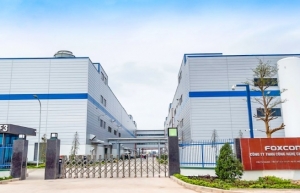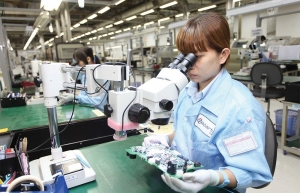Policy efforts going some way to impact investment
The real estate and housing markets are eagerly anticipating the implementation of these laws and decrees, especially given the recent signs of recovery in some market segments. An increase in the supply of real estate and housing is expected. We are anticipating a positive outlook for the broader asset market, including securities and corporate bonds, after August.
 |
| Dr. Le Xuan Nghia, economist |
Public and private investments are also significantly impacted by these laws. Public investment in 2024 is projected to slow compared to 2023, largely due to businesses and residents awaiting a new land price mechanism for site clearance compensation, which requires land prices to be determined according to market principles.
This delay has caused difficulties in compensation and site clearance, affecting localities like Hung Yen, Bac Ninh, and Haiphong, which were previously successful in disbursing public investment. These challenges extend to public and private projects related to land, housing, industrial parks, and road traffic, including branches of the North-South Expressway.
The implementation of the aforementioned laws is anticipated to be a significant driver of economic recovery and macroeconomic stability. These laws and their guiding decrees will have a widespread impact on various industries, including banking, finance, securities, retail, tourism, transportation, and especially construction.
They are expected to accelerate the disbursement of public investment capital, bank credit, and help revive the real estate market. The shortened validity period of these laws has been well-received by both direct and indirect foreign investors, boosting their confidence to expand production and business investments and return to the stock market positively.
Meanwhile, monetary policy remains loose and flexible, aiming to reduce lending interest rates for businesses, including those in production, business, and the real estate market. In the latter half of 2024, the policy of extending, deferring, and maintaining debt groups for businesses will continue, ensuring ongoing credit flow into the economy.
Recent months have shown a positive change in credit growth, which exceeded 6 per cent in the first half of the year and is forecasted to surpass 15-16 per cent.
The State Bank of Vietnam has also maintained a stable exchange rate and significantly reduced the gap between domestic and international gold prices. Although these measures are not yet entirely sustainable, they have initially strengthened domestic and international investor confidence in the government’s ability to manage the macroeconomy.
Fiscal policy has shown improvement, with actual budget revenue increasing. Budget deficit remains within the limits approved by the National Assembly, and the public debt-to-GDP ratio is stable. Financial and tax discipline have seen positive changes. Additionally, the corporate bond market and the stock market have experienced relatively positive growth compared to last year.
International trade has rebounded well, supported by Vietnam’s free trade agreements. Despite geopolitical challenges, Vietnam’s trade relations with major partners remain stable and growing. The international trade surplus continues to increase even with high import growth, indicating effective utilisation of the international trade recovery.
The domestic market recovery is also notable, with total domestic trade value expected to increase by 7-8 per cent for the year. This growth could help private investment, which saw only a 4.5 per cent increase in the first half of the year, to recover more robustly in Q3 and Q4.
Additionally, the government and businesses are urgently implementing strategies to reduce greenhouse gas (GHG) emissions. Relevant ministries are revising rules to establish a robust legal framework for transitioning to a green economy, green finance, and a circular economy. This has attracted significant interest from foreign enterprises in energy conversion projects, new technologies, new materials, and forest carbon sequestration credits.
Several large-scale GHG emission reduction projects are underway. These include a biogas project which aims to reduce 170,000 tonnes of CO2, a project targeting one million hectares of green, clean rice in the Mekong Delta region, and clean transportation initiatives such as VinFast’s electric vehicles. Additionally, the forest carbon credit trading project is progressing in six provinces of the north-central region and will soon expand to 11 provinces in the south-central region.
These efforts have positively impacted the roles and responsibilities of businesses and individuals in reducing emissions, aligning with the goal of achieving net-zero by 2050.
The Ministry of Finance is actively drafting a project to construct and manage a national carbon trading platform, aiming to facilitate transactions for businesses and forest owners to buy, sell, and transfer carbon credits both domestically and internationally. These policies have generated substantial interest among businesses and forest owners, who anticipate higher incomes from reducing GHG emissions and selling forest carbon sequestration certificates compared to the current forest protection fee.
This initiative also promises to create sustainable livelihoods, enabling the restoration and development of Vietnam’s tropical rainforests, and becoming a significant income source for the agricultural sector.
Moreover, the development of forests with diverse ecology and aquatic life contributes effectively to maintaining ecological balance and livelihoods in downstream river areas. This holistic approach supports environmental sustainability while fostering economic growth and resilience in local communities.
 | Vietnam benefits from China+1 policy shift Chinese and Taiwanese groups continue to seek strategic investment opportunities in Vietnam as the country emerges as one of the top gainers from the China+1 strategy. |
 | FDI still on track for welcome 2024 results Foreign direct investment inflow into Vietnam for the entire year is expected to outperform last year, fuelled by encouraging results thus far in 2024. |
 | South Korea's Partron Vina boosts investment to $269 million in Vietnam Partron Vina Co. Ltd., a key Samsung supplier, will increase its investment to $269.4 million in Vietnam as it expands electronics component production. |
What the stars mean:
★ Poor ★ ★ Promising ★★★ Good ★★★★ Very good ★★★★★ Exceptional
Related Contents
Latest News
More News
- Citi economists project robust Vietnam economic growth in 2026 (February 14, 2026 | 18:00)
- Sustaining high growth must be balanced in stable manner (February 14, 2026 | 09:00)
- From 5G to 6G: how AI is shaping Vietnam’s path to digital leadership (February 13, 2026 | 10:59)
- Cooperation must align with Vietnam’s long-term ambitions (February 13, 2026 | 09:00)
- Need-to-know aspects ahead of AI law (February 13, 2026 | 08:00)
- Legalities to early operations for Vietnam’s IFC (February 11, 2026 | 12:17)
- Foreign-language trademarks gain traction in Vietnam (February 06, 2026 | 09:26)
- Offshore structuring and the Singapore holding route (February 02, 2026 | 10:39)
- Vietnam enters new development era: Russian scholar (January 25, 2026 | 10:08)
- 14th National Party Congress marks new era, expands Vietnam’s global role: Australian scholar (January 25, 2026 | 09:54)

 Tag:
Tag:


















 Mobile Version
Mobile Version